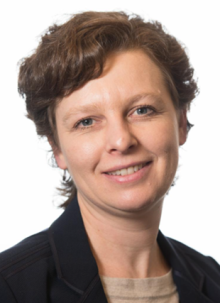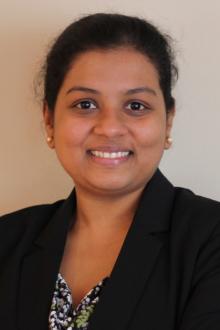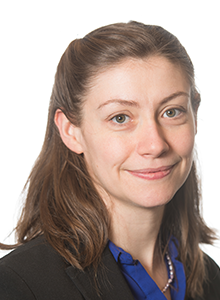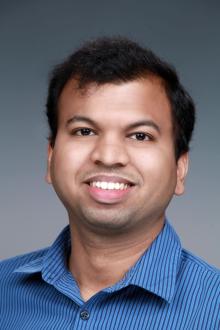Leadership
 | Grant Johnson – Initiative Lead Dr. Grant E. Johnson is a senior research scientist who leads the Chemical Physics and Separations Team. He co-leads the Separation Science Program, which focuses on developing a fundamental understanding of structure-function relationships to support the design and synthesis of tailored materials for improved separations. He also co-leads a Microelectronics Science Research Center Project aimed at developing novel molecular memristors for energy-efficient and resilient neuromorphic computing. He was a member of the Joint Center for Energy Storage Research Battery Innovation Hub and has interests in developing molecular qubits for quantum information systems and atomically precise clusters for energy-efficient and selective catalytic reactions. In 2015, he received the Ronald L. Brodzinski Award for Exceptional Early Career Achievement from PNNL. In 2024, he was elected a Fellow of the American Society for the Advancement of Science (AAAS). He has over 90 publications, with an h-index of 36 and total citations exceeding 3,800. |
 | Maria Sushko – Thrust 1 Lead Dr. Maria Sushko is a senior research scientist and a thrust lead and co-PI on three Basic Energy Sciences, Materials Sciences, and Engineering programs and a key person on the Chemical Sciences, Geosciences, and Biosciences program. She serves as a sector manager for the Office of Science Fusion Energy Sciences program. She brings expertise in interfacial processes, nucleation and growth phenomena, and reactive transport. She brings additional expertise in the development of hybrid computational approaches that self-consistently couple quantum mechanics with statistical mechanics and diffusion theory. She serves on the editorial board of the journal, Scientific Reports, has published over 100 papers, has over 11,000 citations, and an h-index of 39. |
 | Elias Nakouzi – Thrust 1 Deputy Lead Dr. Elias Nakouzi is a materials scientist working on solid-liquid interfaces and crystallization. He brings expertise in non-equilibrium thermodynamics and precipitation phenomena. He has published over 50 peer-reviewed papers and has over 1,500 citations with an h-index of 21. |
 | Chinmayee Subban – Thrust 2 Lead Dr. Chinmayee Subban is a chemist who currently leads several DOE-funded efforts ranging from fundamental interfacial studies to bench-scale demonstrations and technology transfer for separation strategies, and she brings expertise in the development of materials and methods for diverse liquid separations. She has published over 25 peer-reviewed articles and has over 850 citations with an h-index of 15. |
 | Amanda Lines – Thrust 2 Deputy Lead Dr. Amanda Lines is a chemist with expertise in the development and validation of online spectroscopic process monitoring sensors and associated data analytics tools. She has over 45 peer-reviewed publications with over 1,100 citations and an h-index of 20. |
 | Venky Prabhakaran – Crosscut Thrust Lead Dr. Venky Prabhakaran is a chemical engineer who currently leads a thrust in the Basic Energy Sciences-funded Separation Science core program. He brings extensive experience in the development of in situ and operando approaches for studying ion interactions and nanoscale phenomena at electrochemical interfaces relevant to separations, energy conversion, and storage. He currently serves on the editorial boards of the journals, Scientific Reports, Journal of Ionic Liquids, and Frontiers in Energy Research. He has over 60 publications with over 2,000 citations and an h-index of 24. |
 | Pauline Simonnin- Crosscut Thrust Deputy Lead Dr. Pauline Simonnin is a computational scientist specializing in the transport properties of complex systems. Her core expertise lies in hydrodynamics, where she uses advanced simulation techniques to study phenomena like the viscosity of confined fluids within materials such as clay. She also investigates transport properties in materials, including diffusion in the context of diffusion-induced grain boundary migration in alloys and superionic diffusion in materials like silver sulfide. Additionally, her research explores wetting properties and charge transfer in clay minerals as well as the influence of external fields, such as electric and magnetic fields, on electrolytes, including lanthanides. |